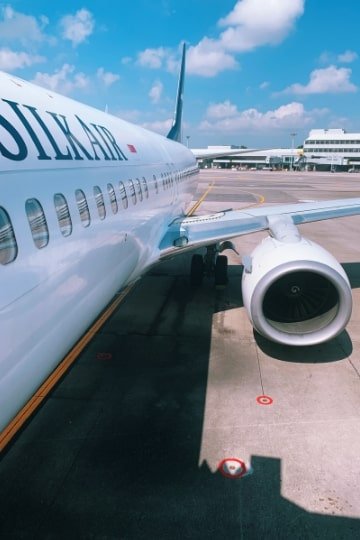You’ve been eagerly awaiting that exact moment when you would step off the plane, to feel snow for the first time falling gently upon your face. Sure you might be a little sore from the 14-hour plane ride, but the chance to experience life halfway across the world would be well worth it.
But wait. What’s this fuzzy brained feeling you’re getting as you try to get up from your seat? Your stomach feels both empty and full at the same time, and there’s this weird taste at the back of your mouth. You can’t decide if you want a candy bar or a full steak meal – are you even hungry? You’re confused and feeling more and more irritated by the minute.
Jet lag is the bane of travellers whose trips take them across time zones. It can dampen the enthusiasm of visiting a foreign country, cause you to make a careless decision and mar the start of a long-awaited holiday. Severe jet lag can even make you feel hungover, which is not great for waiting out the long lines at immigration.
Science knows that jet lag occurs when the body’s natural systems are disrupted, but little is known about why, However, we do know that using cues to signal the body can help you recover from jet lag quicker, or at least reduce its effects.
Here’s what you can do to reduce the unpleasantness of jet lag, or even avoid it altogether.
1. Eat Carbs Before Flying

The night before you fly, make sure to load up on a carb heavy-meal, such as pasta. It seems that eating a meal dense in carbohydrates for dinner before you fly has a subtle effect on your body, increasing your ability to fall asleep – especially if you’re flying westwards.
Scientists are not sure why this happens, but we do know that carbs provide tryptophan, which is needed by the brain to make the sleep-inducing neurotransmitter serotonin.
2. Start Your Day with Protein

The morning after your arrival, choose a protein-laden meal to start your day. One of the main side effects of jet lag is drowsiness as your brain is still operating on the old time zone. Eating a protein-rich meal can help alleviate this by providing the nutrients your brain needs to remain alert throughout the day.
If you don’t have the appetite for breakfast, try going for easy-to-digest options like scrambled or poached eggs. Otherwise, a protein shake or meal replacement can also be a good way to help stay awake and stave off hunger at inconvenient hours.
3. Keep Up the Workouts

While you’re feeling headache-y and out of sorts, hitting the gym may be the last thing you feel like doing. But change into your workout gear and go for a workout anyway, as the exercise can help your body get rid of excess energy or otherwise unkink itself from the shift in time zones.
If pumping iron isn’t your style, going for a run or swim can also be similarly beneficial.
4. Make Your Room Dark and Cold

Restoring your sleep cycle will also help you recover quickly from jet lag, yet it can be difficult going to bed when your body is still primed for wakefulness. To help signal your body for sleep, make sure your room is as dark as possible.
If your accommodations has blackout curtains, use them to block out errant light, even if you’re used to sleeping with some background light. A good, comfortable sleeping mask will also help.
As for temperature, make sure your room is comfortably cool, without any chilly drafts blowing directly at you. The ideal temperature for sleep is 20 degrees Celsius, so set the AC or thermostat accordingly.
5. Go for Extra Legroom

Even if you do manage to fall asleep on the plane, chances are you wake up feeling tired and unrefreshed. This most often happens when you’re stuck sleeping in a narrow position with no leg room, which forces your body into a stress position.
To help combat this, consider paying for extra legroom so you can stretch out your legs, relieving the tension from cramming them in a tight space. This in turn can help your body achieve a more relaxed posture, which can help you sleep better.
6. Drink Plenty of Water, Often

You’ve probably heard this one a thousand times already so we won’t nag you any further. Just remember to have a drink every now and then during your flight and in the days after, to keep your body properly hydrated, which can keep the worst of the symptoms at bay.
Pro-tip: If somehow plain water isn’t working to make you feel hydrated, try including some isotonic or sports drinks. Mix one part isotonic water and one part drinking water, and sip until you feel better.




